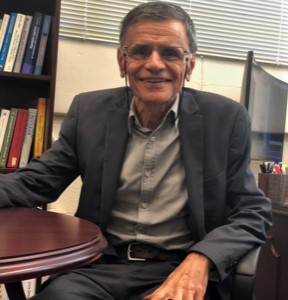Article from ANS Nuclear News December 2020 issue Dr. Ivanov is NEDHO chair as well as nuclear engineering professor & department head at NC State.
 The Nuclear Engineering Department Heads Organization (NEDHO) is an alliance of heads (chairs) of about thirty (30) nuclear engineering schools, departments, and programs in USA. NEDHO is managed by an Executive Committee consisting of Chair, Chair-elect, and the three most immediate past-chairs of NEDHO. NEDHO meetings are normally held in conjunction with meetings of the American Nuclear Society. The meetings are open to anyone but on matters brought before NEDHO which require a vote, each institution is limited to a single official representative (i.e., one vote).
The Nuclear Engineering Department Heads Organization (NEDHO) is an alliance of heads (chairs) of about thirty (30) nuclear engineering schools, departments, and programs in USA. NEDHO is managed by an Executive Committee consisting of Chair, Chair-elect, and the three most immediate past-chairs of NEDHO. NEDHO meetings are normally held in conjunction with meetings of the American Nuclear Society. The meetings are open to anyone but on matters brought before NEDHO which require a vote, each institution is limited to a single official representative (i.e., one vote).
NEDHO was formed to provide a forum for discussion, coordination, and collaboration on issues facing academic programs emphasizing nuclear and radiological science, engineering, and technology. Issues considered by NEDHO include accreditation of academic programs, funding for scholarships, fellowships, and research; funding for training and research reactors, and any other issues raised by academic representatives to NEDHO. NEDHO also distributes and publish on its web-site the yearly nuclear engineering programs’ factsheets used for informing US News Report Nuclear Graduate Programs’ ranking and for informing public about state of the art in US nuclear science and engineering education and research.
NEDHO has an excellent collaboration with the American Nuclear Society, the Nuclear Energy Institute, and other similar societies and organization. NEDHO works to educate national decision makers on topics regarding nuclear policy, science and technology, and engineering education.
The nuclear engineering departments contribute to the advancement of nuclear technology in many ways, from early innovation to technology deployment while hosting unique national capability and attracting people to the field and launching their careers.
Two of the vibrant advanced reactor companies bringing new nuclear technology towards the market, NuScale and Kairos, both were created and nurtured through university programs. Professor Jose Reyes at Oregon State and Professor Per Peterson at Berkeley took novel research ideas and transformed them into companies. Many of their students became the staff members now taking those concepts towards commercialization.
Universities host many unique experimental facilities that are available for supporting national and international research programs. These include facilities such as research reactors, ion beam laboratories, heat transfer/reactor safety facilities, plasma science and engineering facilities, and computational laboratories. The shared research structure built out by the Nuclear Science User Facilities was only possible because of the capability at the university partner organizations.
Universities are leading major multi-institutional centers focused on developing advanced approaches to safeguards. These centers have trained students in technology and also to conduct research as part of large distributed teams.
Finally, university professors are national leaders. From supporting the Nuclear Regulatory Commission’s advisory committees to creating the first ever nuclear fission programs at ARPA-E to creating prize competitions to change the narrative around nuclear waste, universities lead into the future.
The American Nuclear Society is committed to advancing, fostering, and promoting the development and application of nuclear sciences and technologies to benefit society. The nuclear engineering departments are the face of nuclear in many communities and proud to be a critical element of creating those benefits.
